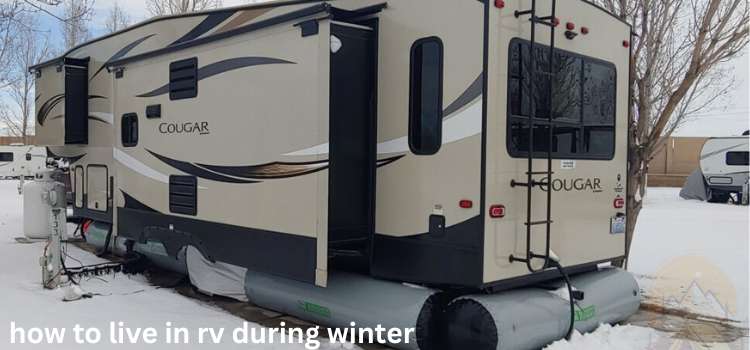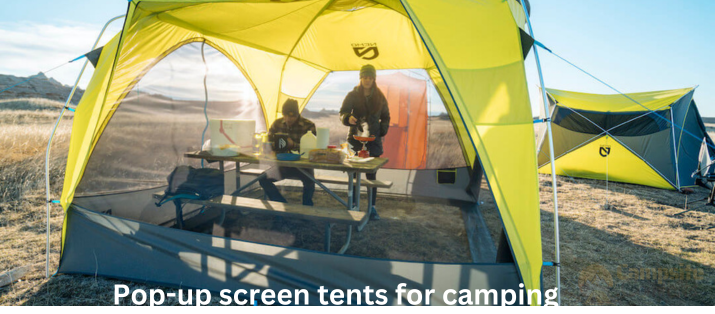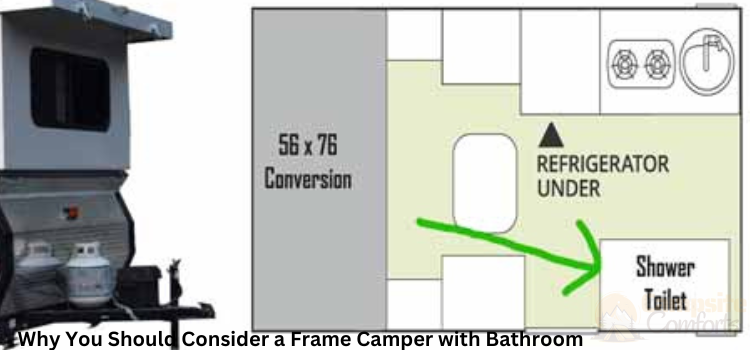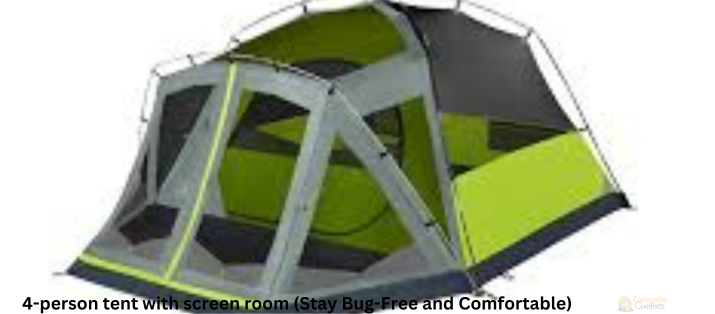As the winter season approaches, many people find themselves longing for warm and cozy spaces to retreat to. But what if you could take that coziness on wheels and travel wherever your heart desires?
That’s where living in an RV during winter comes into play. With its unique blend of freedom and flexibility, RV living offers a one-of-a-kind experience that allows you to embrace the beauty of the winter season while staying comfortable and snug. Whether you’re a seasoned full-time RV or simply looking for a temporary getaway,
In this blog post we will guide you through the benefits and challenges of how to live in RV during winter.
Benefits of how to live in RV during winter:
Benefits of Living in an RV During Winter
Flexibility and Mobility:
One of the greatest advantages of living in an RV during winter is the freedom to move around as you please. Unlike traditional homes, you can easily relocate to warmer areas when temperatures drop or explore new destinations for a change of scenery.
Cost-Effective:
Renting or owning a home can be expensive, especially during the winter months when heating bills skyrocket. By living in an RV, you can significantly reduce your expenses on utilities and maintenance costs since most modern RVs are designed with energy-efficient features.
Connection with Nature:
Living in an RV allows you to fully immerse yourself in nature’s beauty even during winter. You can wake up to breathtaking snowy landscapes right outside your window, go hiking on peaceful, or enjoy cozy campfires under starry skies.
Community Building:
The lively community of fellow RV offers opportunities for socialization and connection with like-minded individuals who share similar interests and passions for travel.
Adventure at Your Doorstep:
When you use an RV as your winter living, countless adventures are waiting for you outside. There’s always something interesting waiting for you, whether it’s ice fishing on frozen lakes, skiing down snow-covered slopes, or visiting small winter markets.

Challenges of living in an RV during winter:
Living in an RV during winter can be a joyful and adventurous experience, but it also comes with its fair share of challenges. One of the main difficulties is staying warm in freezing temperatures. RVs are not as well-insulated as traditional homes, so heating becomes important. Ensuring proper insulation, using space heaters, and investing in heated blankets or mattress pads can help struggle the cold.
Another challenge is dealing with limited storage space. Winter clothing such as heavy coats, boots, and extra bedding take up valuable room inside the RV. Maximizing storage options through creative solutions like utilizing under-bed storage containers or installing shelves can help desolve this issue.
Additionally, managing water supply becomes more challenging during winter months due to freezing pipes and tanks. Insulating exposed pipes and tanks with heat tape or foam covers helps prevent freezing issues.
Living in an RV during winter offers unique advantages such as freedom to travel to snow-covered destinations and lower expenses compared to traditional housing options. With careful planning and preparation for the colder weather conditions, you can fully enjoy your winter adventure on wheels!
Preparing Your RV for Winter Living:
By taking these steps to prepare your RV for winter living insulating and weatherproofing effectively while conducting necessary maintenance checks and ensuring adequate supplies, You’ll be well-equipped to embrace the joys of wintertime while cozy inside your mobile home.
When it comes to living in an RV during winter, preparation is key. One of the first things you’ll want to do is insulate and weatherproof your RV to keep the cold air out and the warm air in. Start by sealing any drafts or gaps around windows, doors, and vents with weather stripping or caulk. You can also add insulation to your RV’s walls, floors, and ceiling for extra warmth.
Next, don’t forget about maintenance checks. Before winter sets in, make sure all systems are running smoothly. This includes checking your furnace for proper operation, inspecting propane tanks for leaks or damage, and testing your water heater and plumbing system.
Stocking up on supplies is essential for a comfortable winter living experience in your RV. Make sure you have enough fuel to last through the colder months if you’re using a generator or relying on propane tanks. Stocking up of non-useful food items so you won’t run out during snowy days when venturing outside may not be ideal.
Tips for Staying Warm in Your RV:
When it comes to staying warm in your RV during the winter months, there are a few key tips and tricks that can help keep you cozy. First and foremost, consider your heating options. Investing in a good quality space heater or portable electric fireplace can make a world of difference in keeping your living space warm and comfortable.
In addition to heaters, layering clothing is another effective way to stay warm inside your RV. Start with thermal underwear as a base layer, then add on layers like sweaters, fleece jackets, and even down vests if needed. Remember to wear thick socks and invest in insulated boots for extra warmth.
To further insulate your living area from the cold outside temperatures, utilize thermal curtains and blankets. These specially designed curtains have an added layer of insulation that helps prevent heat loss through windows. Similarly, thermal blankets can be used on bedsto trap body heat and provide extra warmth while sleeping or lounging.
By implementing these tips for staying warm in your RV during winter – including choosing the right heating options, layering clothing effectively, and utilizing thermal curtains and blankets, You’ll be able to enjoy a cozy home on wheels no matter how low the temperatures drop outside.
Managing Power and Water Usage in Cold Weather:
By implementing these strategies, you’ll be able to effectively manage power and water usage while enjoying the beauty of winter in your cozy RV home on wheels.
When it comes to living in an RV during winter, managing power and water usage becomes essential for a comfortable and hassle-free experience. One of the best options to ensure a constant power supply is solar power. Installing solar panels on your RV can provide you with renewable energy and help reduce reliance on traditional sources. Not only does this save money in the long run, but it also allows you to have electricity even when camping in remote areas.
Another aspect to consider is water tank insulation. Cold weather can cause water tanks to freeze, leading to plumbing issues and inconvenience. Insulating your water tanks helps prevent freezing by keeping the temperature stable inside the tank. There are various methods for insulating your tanks such as using foam insulation or electric heating pads specifically designed for RVs.
Safety Considerations for living in RV during winter:
When it comes to living in an RV during the winter months, safety should be your top priority. Here are some important considerations to keep in mind to ensure a safe and enjoyable experience.
First and foremost, make sure your RV is properly insulated. This will help keep the cold air out and prevent heat loss. Check all windows, doors, and vents for any drafts or leaks that may need to be addressed.
Another crucial aspect of winter RV living is carbon monoxide detection. It’s essential to have functioning CO detectors installed inside your vehicle, as this gas can be deadly if not detected early on. Test them regularly and replace batteries as needed.
Additionally, proper ventilation is key when using propane appliances such as heaters or stoves. Ensure that there is adequate airflow within the RV to prevent a buildup of potentially dangerous gases.
To avoid freezing pipes, take precautions like insulating exposed water lines and using heated water hoses specifically designed for cold weather conditions. Drain your tanks regularly so they don’t freeze up unexpectedly.
Always check road conditions before traveling during winter months and carry necessary supplies like tire chains, emergency kits, extra blankets, food, and water.
By keeping these safety considerations in mind while living in an RV during winter, you can enjoy a cozy and worry-free experience on the road.
Conclusion:
Living in an RV during the winter months may seem difficult, but with these tips and tricks, you can make it a comfortable and enjoyable experience. From preparing your RV for cold weather to making sure you have enough insulation and supplies, there are many things to consider. With proper planning and preparation, however, living in an RV during the winter can offer unique opportunities for adventure and freedom. So don’t let the cold temperatures hold you back, follow these tips and enjoy a cozy winter in your home on wheels.
FAQS:
Is it feasible to spend the winter in an RV?
It is feasible to live comfortably in an RV during the winter months if you know a few helpful hints. Whether it’s a travel trailer, fifth wheel, or motorhome, I’ll explain in this post how to keep your movable home toasty all season long.
Are RVs safe in the winter?
Although all RVs have some insulation within the walls, not all of them have very good insulation on the top and bottom. The fully insulated RVs are the finest for cold climates. To further protect the RV from cold weather, some even have insulating covers called “RV skirts” that you can install while you’re parked.
How long do RVs last to live in?
How long your RV lasts can be greatly impacted by proper maintenance. With the right care, an RV can have an average lifespan of 10 to 30 years, or 200,000–300,000 kilometers. However, this is what shortens the life of your RV and how to avoid it.







One Comment